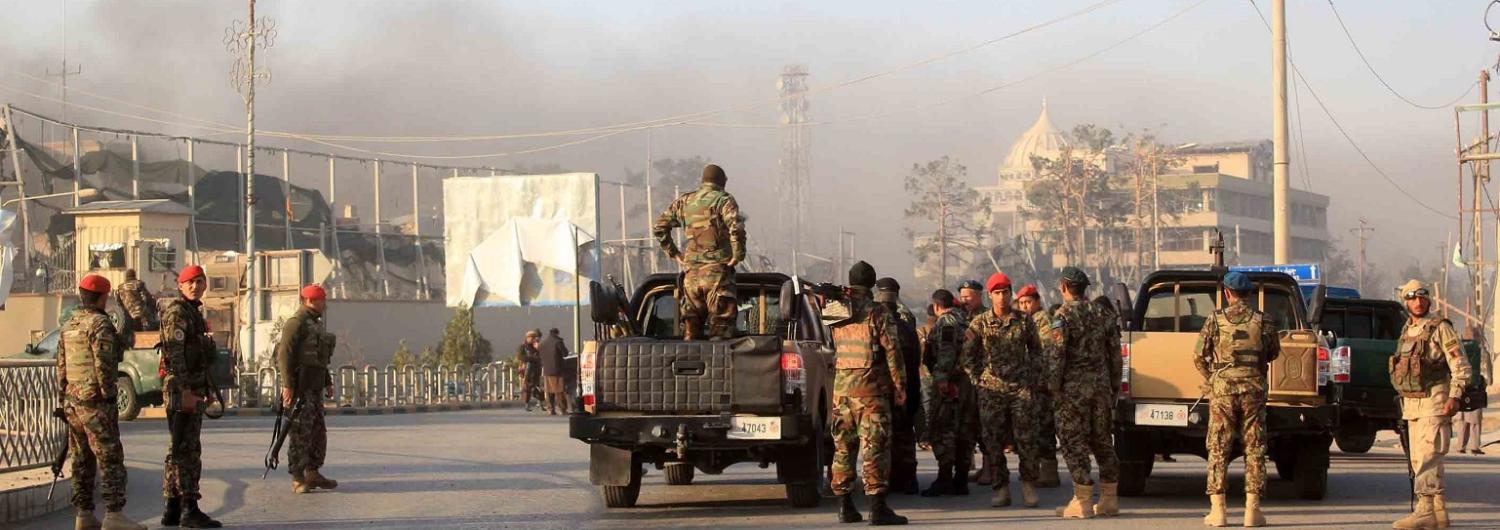After the recent peace deal struck between the Afghan Government and rebel group Hezb-i-Islami (HIA) comes the bigger question: Can there be peace talks with the Taliban?
The Afghan peace process with the Taliban broke down last year almost immediately after preliminary talks began in Pakistan. Since then, there have been various efforts to get it started again, including a series of talks involving the United States, Pakistan, China and Afghanistan (the Quadrilateral Coordination Group). All have been unsuccessful.
In April of this year, Afghan President Ashraf Ghani announced he would seek no further talks with Taliban.
For its part, the Taliban has a long list of demands that it wants fulfilled before it would be ready to talk peace. It wants the United Nations to remove senior Taliban commanders from a blacklist that freezes assets and bans travel. It wants more than 5000 prisoners released from Afghan jails. And it has demanded the withdrawal of international forces.
While some Taliban commanders holding a so-called moderate position, such as Mola Akhtar Mohmad Mansoor, have broached the subject of negotiating with Kabul, their precondition is the withdrawal of all foreign troops from Afghanistan. The chance of this is remote. Washington has confirmed that about 10,000 troops will stay in Afghanistan through 2016 (dropping to 5500 in 2017), while NATO has stated that its troops will remain in Afghanistan until 2020.
Add to these demands poor Afghan governance and safe havens for the Taliban in Pakistan and Iran and the scale of difficulty involved in progressing the peace process becomes clear.
A recent statement from the Taliban said its 'political efforts to come to mutual understanding' did not mean an end to fighting, nor did they mean that the Taliban accepted the Afghan constitution. Classified intelligence documents received by the Afghan President from his National Security Council last month reportedly concluded that the Afghan Taliban leadership based in the Pakistani cities of Peshawar and Quetta has not given up the goal of reclaiming power.
In September, Donald Trump said 'places like Afghanistan are safer than US cities' but it's not clear what the basis for the comparison was. According to the United Nations, 5166 civilians were killed or maimed in Afghanistan during the first six months of the year the highest number since 2009.
Afghan forces have struggled to contain the Taliban insurgency, with three deadly suicide bombings claimed by the group in just a few days including at the NATO air base in Bagram, at a German consulate in Mazar-i-Sharif and on a civilian convoy in Kabul.
Hopes the peace deal with HIA might encourage Taliban members who would be willing to join the peace process were dashed last week when President Ghani asked the UN to add the Taliban's new leader to its sanctions list.
'We want the UN to add names of terrorists including Taliban leader Mullah Haibatullah to its sanctions list,' President Ghani said in a statement after meeting with members of the UN sanctions committee in Kabul.
Afghan political expert Waheed Mozada told me in a telephone interview this announcement was a game changer by the Afghan government and the prospect for peace has reduced greatly. Some of the views dominant in the Taliban can be gauged by this tweet from Taliban spokesman Zabiullah Mujahid: 'The mujahideen are making rapid military gains, capturing territory and destroying enemy centers. Expecting us to surrender and come for talks is foolishness.'
So, while the leader of the HIA is expected to formally sign an agreement with the Afghan government in coming weeks, it seems there will be no respite for the Afghan people. There are broader ramifications for the region, which will face more security threats and ever-harder to control militancy, and for the US, which has long hoped for a peace deal as part of its endgame in Afghanistan.
